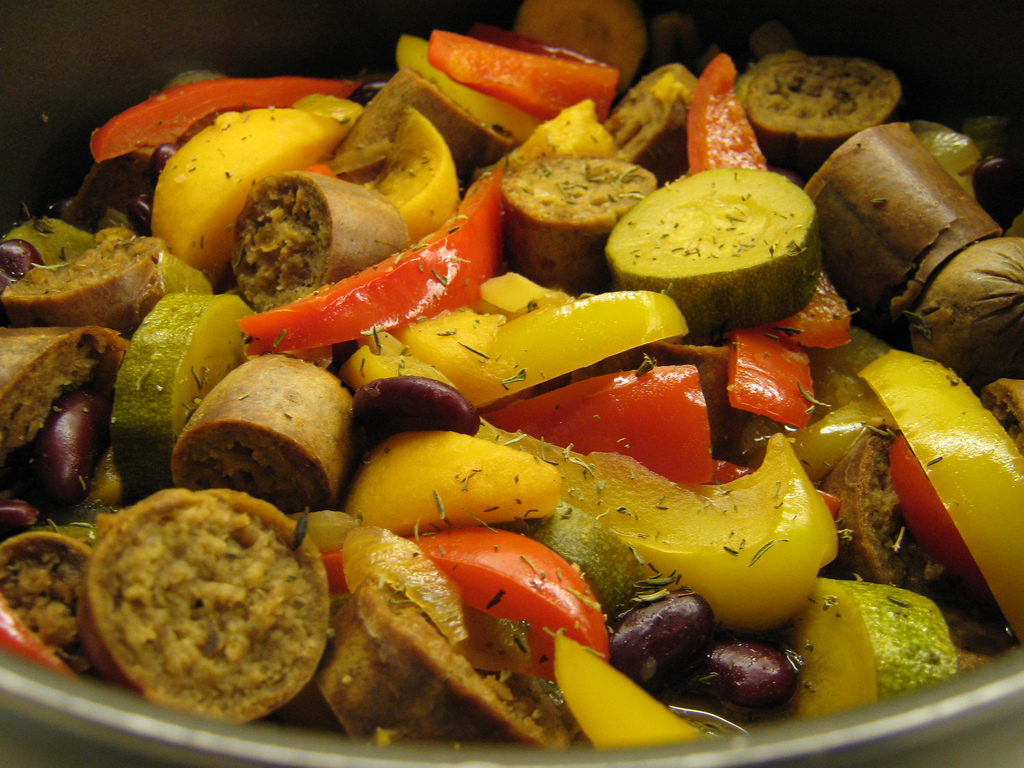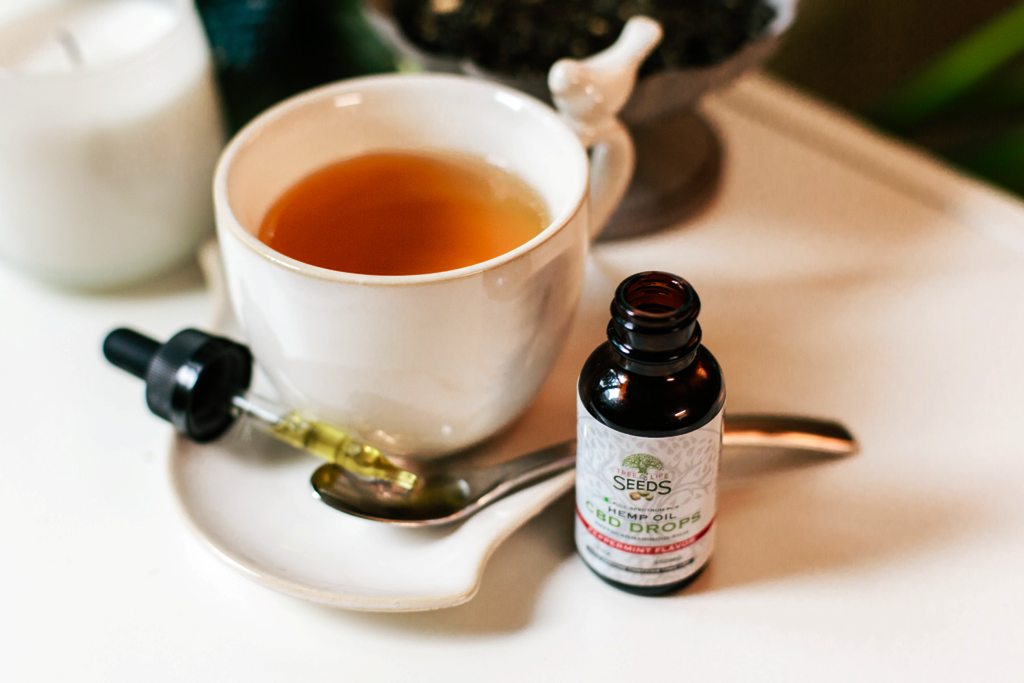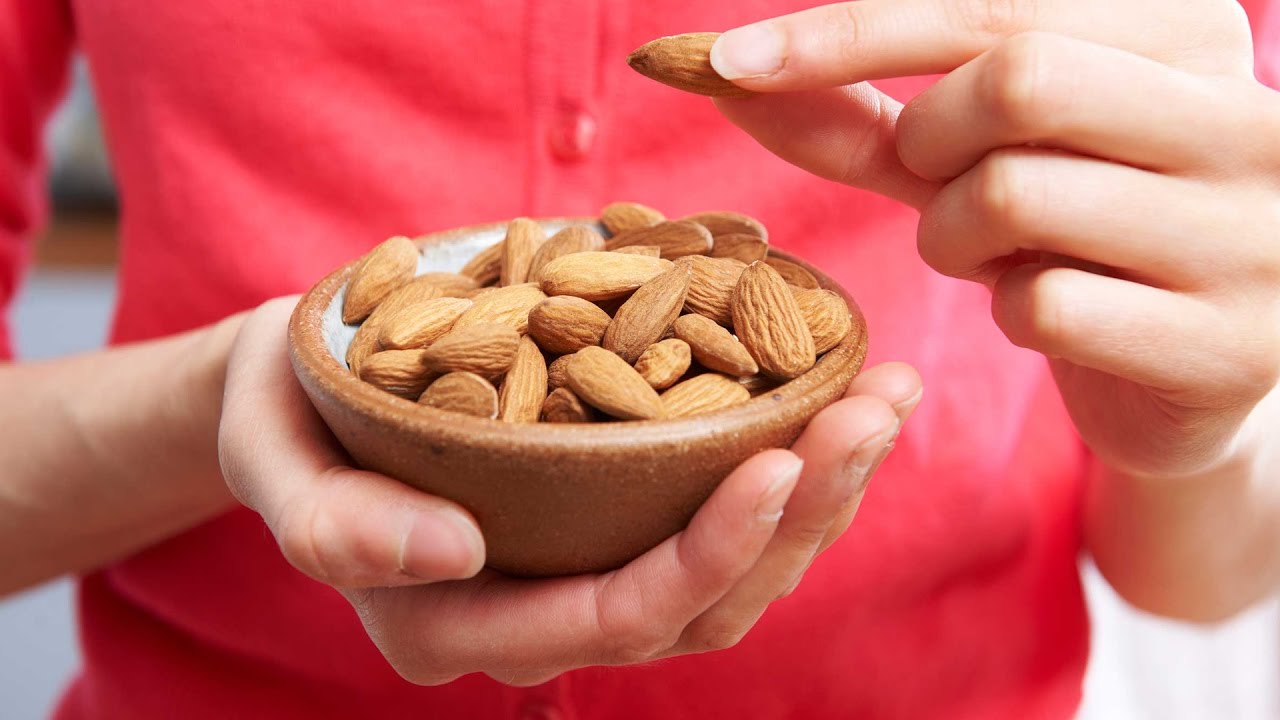Is it healthier to be a Vegetarian or a Vegan?
A balanced vegetarian or vegan diet can bring many health benefits. These dietary patterns have been associated with weight loss, better blood sugar levels and a lower risk of heart disease and certain forms of cancer. However, it can be a challenge to follow a balanced vegetarian diet that contains all necessary nutrients. This article reveals some of the most common mistakes of people who follow a vegetarian or vegan diet and explains how to prevent them.
-
The assumption that vegan or vegetarian products are automatically healthier
Just because a product is vegetarian or vegan does not mean that it is healthier than the normal alternative. For example, almond milk is a popular vegetable milk that vegans often have in their home. Although almond milk is low in calories and enriched with various vitamins and minerals, it is not necessarily healthier than cow’s milk. A glass with 240 ml of low-fat cow’s milk contains 8 grams of protein, while the same amount of unsweetened almond milk contains only 1 gram (5, 6). Sweetened almond milk can also contain many added sugars, with 16 grams of sugar in one glass (7). Other vegetarian products, such as burgers, nuggets and other soy-based meat substitutes, are often heavily processed and contain a long list of artificial ingredients. They are often not healthier than other non-vegetarian processed foods. Even though they are vegetarian, they usually contain a lot of calories, but few proteins, fiber and nutrients that you need for a well-balanced meal. Although these products make the transition to a vegan or vegetarian diet easier, you can eat them in moderation and in combination with nutritious, pure food.
In short: Many vegetarian or vegan foods are often heavily processed, rich in added sugars and lack the good nutrients. If you want to eat these products do so in moderation.
- Insufficient vitamin B12
Vitamin B12 plays several important roles in your body. In addition to other processes, it is important for the production of red blood cells and DNA (8). Unfortunately, the main sources of vitamin B12 are animal products, such as meat, poultry, shellfish, eggs and dairy products. This is why vegetarians have an increased risk of a vitamin B12 deficiency (9). A vitamin B12 deficiency can cause fatigue, memory problems and numbness. It can also lead to megaloblastic anemia, a condition caused by having too few red blood cells (10). However, a high intake of folic acid can mask a B12 deficiency, causing the symptoms to remain blocked until the damage is irreversible (11). However, there are foods and supplements that can help vegetarians meet their vitamin B12 needs. In addition to animal products, enriched food and edible algae also contain vitamin B12 (12, 13). Vegetarians should keep track of their vitamin B12 intake and consider supplements if they do not receive enough nutrition.
In short: Vegetarians and vegans are at greater risk of a vitamin B12 deficiency, so make sure you take fortified food or vitamin B12 supplements.
- Replace meat with cheese
One of the easiest ways to make almost every dish vegetarian is to take out the meat and put cheese in it. This alternating trick works for sandwiches, salads, pasta and many other dishes when it comes to taste. Although cheese contains quite a few proteins, vitamins and minerals, it is not a substitute for the wide range of nutrients in meat. For example, in a serving of 28 grams of steak, four times more iron and twice as much zinc than the same amount of cheddar cheese (14, 15). Cheese also contains fewer proteins and more calories than meat. Cheese contains only about 80 percent of the proteins in chicken, but almost 2.5 times as many calories (15, 16). Instead of simply replacing meat with cheese, you should take a variety of plant-based foods to get all your needed nutrients. Chickpeas, quinoa, lentils, beans and nuts are all excellent choices to complete your vegetarian diet.
In short: Replace your meat not only with cheese, but with a variety of vegetable foods to get all your nutrients.
- Eating too few calories
Many foods and food groups are not an option for vegans and vegetarians, so it can sometimes be difficult to get enough calories. Vegans and vegetarians even seem to take fewer calories than people who eat both meat and vegetable. A study compared the quality of the diet of 1,475 people, including those from vegans, vegetarians, vegetarians who eat fish, people who eat meat and vegetables and people who only eat meat once a week. Vegans had the lowest calorie intake of all groups, 600 fewer calories than people who eat meat and vegetable (17). Calories are the main source of energy for the body and your body needs a certain amount of energy to function. If you take too few calories this can lead to negative side effects, such as a shortage of certain nutrients, fatigue and a slower metabolism (18, 19, 20).
In short: Vegans and vegetarians can have a lower caloric intake than people who eat meat and vegetables. Provide adequate calories if you fall within these groups.
- Drink insufficient water
Drinking water is important for everyone, but especially for people who eat a lot of fiber, such as vegetarians and vegans. Vegetarians often eat more fiber because fiber-rich legumes, vegetables and whole grains are common in a vegetarian diet. A study found that people who eat both meat and vegetable eat about 27 grams of fiber per day, while vegans and vegetarians eat about 41 and 34 grams (17). Drinking water is important because it helps the fibers move through the digestive system and helps prevent complaints such as flatulence, bloating and constipation. Fiber consumption is very important for health and is linked to a reduced risk of heart disease, stroke, diabetes and obesity (21). According to current guidelines, women must eat at least 25 grams of fiber and men at least 38 grams (22). To make sure you drink plenty of water, always drink when you are thirsty and spread your water intake throughout the day to stay hydrated.
In short: Vegans and vegetarians usually eat a lot of fiber. Drinking enough water can help prevent digestive problems that are linked to increased fiber intake, such as flatulence, bloating and constipation.
- Forgotten iron
Meat is a good source of many important vitamins and minerals, including iron. A portion of 85 grams of minced meat contains 14 percent of the ADH iron (14). Meat also contains heme iron, a form of iron that your body absorbs easily. Vegetable sources of iron contain non-heme iron, which your body does not absorb so easily. Non-heme iron is found in many fruits, vegetables, grains and beans (23). That is why vegetarians run a greater risk of anemia, a condition in which there are insufficient red blood cells in the body. Symptoms of this are fatigue, shortness of breath and dizziness (24). A good and balanced vegetarian diet full of iron-rich plant food can happily meet your daily needs. If you are vegetarian or vegan, eat a lot of sources of iron, such as lentils, beans, fortified grains, nuts, seeds, oats and leaf green. The combination of iron and vitamin C can thereby increase the absorption of non-heme iron (25).
In short: Vegetable nutrition contains non-heme iron, which your body does not absorb as easily as heme iron in meat. Vegetarians should take iron-rich foods in combination with vitamin C to increase the intake.
- Eating inadequate pure food
Just because a product is vegetarian or vegan does not mean that it is healthy. There is a lot of processed food in the store without meat or animal products. Try to leave this and use your vegetarian diet as an opportunity to reduce your consumption of processed food and increase your intake of healthy, pure foods such as fruit, vegetables and whole grain grains. If you eat more of this, you get valuable vitamins, minerals and antioxidants that you need to prevent nutrient deficiencies. Eating pure instead of processed food can also bring other benefits, such as a faster metabolism. In a study, the metabolism of 17 participants was measured after a meal with processed or pure food. Both groups were equally saturated after the meal, but the group that ate the pure food burned nearly twice as many calories after the meal than the group that consumed processed food (26). If you want to eat more pure food, replace processed grains with wholemeal grains and limit the amount of processed food and convenience foods. Eat more vegetables and fruits with your meal and snacks.
In short: Vegetarian diets should contain a lot of pure food, such as fruit, vegetables and whole grains. These help increase your intake of nutrients and eat a balanced diet.
- Too little calcium
Calcium is an important mineral that your body needs to keep your bones and teeth strong, your muscles work efficiently and support the function of your nervous system (27). A calcium deficiency can lead to osteoporosis, a condition that causes weak, porous bones and an increased risk of bone fractures (28). Although calcium in all sorts of foods is the best known source of calcium dairy. People who do not take dairy products should check their calcium intake and eat other calcium-rich products. These are kale, broccoli, bok choy, almonds, figs and oranges. Enriched food can also be a good source of calcium. You can get all the calcium you need by adding a few servings of these foods to your meal or snack during the day.
In short: People who do not take milk or dairy products would have to take another calcium-rich diet to meet their calcium needs.
- Underestimate the importance of meal planning
Whether you cook at home or eat out, vegetarian or vegan food requires extra planning. A meal overview can be especially useful if you are just switching to a vegetarian or vegan diet. It can facilitate the transition and help you to follow a balanced and nutritious diet. When you eat or travel, good preparation can be very important. Some restaurants have a limited offer for vegetarians, so it is good to check the menu before leaving so that you can make conscious choices and pick out the most nutritious options. Make it a habit to find a number of vegetarian recipes every week and try them out.
In short: A good meal overview and looking at options before you eat out can help you with a diverse and balanced diet.
- Eating inadequate protein
Proteins are an essential part of your diet. Your body uses it to make tissue and produce enzymes and hormones. Studies show that proteins help saturate, increase muscle mass and reduce ‘longing’ (29, 30, 31). According to current guidelines, adults should eat at least 0.8 grams of protein per kilogram of body weight daily (32). For example, someone of, for example, 70 kilos should eat about 56 grams of protein per day. If you eat animal products, it may be easier to comply with this. A portion of 85 grams of salmon contains 19 grams of protein, while the same amount of roasted chicken contains 27 grams (33, 16). If you follow a vegetarian diet, you often have to put more effort into eating protein-rich foods to meet your protein needs. There is a lot of vegetable nutrition that contains about the same amount of protein as meat. For example, a portion of 198 grams of cooked lentils contains 18 grams of proteins (34). Beans, lentils, nuts, nut butters, tofu and tempeh are all good sources of protein. Try to take at least one or two of these foods with each meal to ensure sufficient protein.
In short: Vegetarians should pay extra attention to their protein intake and should take one or two portions of protein-rich plant foods with each meal.
- Insufficient omega-3 fatty acids
Omega-3 fatty acids are an essential part of your diet. They can lower blood triglycerides, relieve inflammation and protect against dementia (35, 36, 37). Fatty fish and fish oil are the most common sources of omega-3 fatty acids. They contain docosahexaenoic acid (DHA) and eicosapentaenoic acid (EPA), two forms of omega-3 fatty acids that are most favorable. Vegetable nutrition on the other hand contains alfa linolenic acid (ALA), an omega-3 fatty acid that your body has to convert into DHA and EPA to be able to use it (38). Unfortunately, your body can only convert 5 percent of the ALA to EPA and less than 0.5 percent to DHA (39). To get enough omega-3 on a vegetarian diet you can eat a lot of ALA-rich food or take a vegetable omega-3 supplement such as algae oil. Foods with the most ALA omega-3 fatty acids are chia seeds, walnuts, hemp seed, linseed, sprouts and perilla oil. Eating this diet every day can easily help you meet your daily omega-3 needs.
In short: Vegetable nutrition contains ALA, an omega-3 fatty acid that your body can only use in small quantities. Vegetarians should take many ALA-rich products or a vegetable supplement.
- Eating too much processed carbohydrates
Many vegetarians replace meat with processed carbohydrates. Unfortunately, pasta, bread, bagels, cakes and crackers are often the main ingredients in a poorly planned vegetarian diet. During processing, processed grains are stripped of all favorable fibers contained in wholemeal grains. Fibers help to ward off chronic diseases, they work saturating and slow the absorption of sugar to maintain a stable blood sugar level (21, 40). A high intake of processed carbohydrates is linked to a higher risk of diabetes and more belly fat (41, 42). To get more nutrients, exchange processed grains such as white bread, pasta and white rice for whole grains such as quinoa, oats, brown rice and buckwheat. Take lots of fresh fruit, vegetables and legumes to keep your diet balanced and nutritious.
In short: Replace meat with wholemeal cereals instead of the processed variety as part of a healthy diet.
Finally
A balanced vegan or vegetarian diet can be very healthy and nutritious. However, these diets can also lead to nutrient deficiencies and possible health problems if they are not planned properly. To follow a healthy vegan or vegetarian diet you simply eat pure food and regularly a number of important nutrients (translated with permission).


